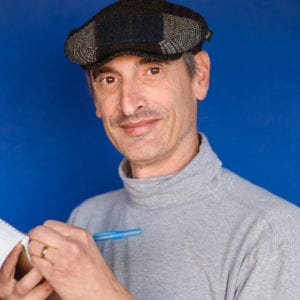Human Resources
Lee Chottiner
Itzik Feffer.
David Hofshteyn.
Leyb Kvitko.
Peretz Markish.
I don’t expect you to know these names, even if you are poetry lovers.
They’re not household names in Jewish circles, but they ought to be – especially now.
They were just four of 13 leading Jewish poets and intellectuals in the Soviet Union, who, on the night of Aug. 12, 1952 – 68 years ago this week – were executed in the basement of Moscow’s notorious Lubianka Prison – victims of one of Josef Stalin’s final purges. Their fate is marked on Jewish calendars as The Night of The Murdered Poets.
And when you look at your calendar, you either gloss right over that notice or take a moment to ask yourselves, “What’s this all about?”
Arrested in 1948 and 49 and charged (falsely) with treason and espionage, these poets and writers languished in Lubianka for three years, suffering torture, beatings and isolation before finally meeting their fates.
Most, if not all, had been members of the Jewish Anti-Fascist Committee (JAC), a wartime initiative that drummed up support among Jews in the West for the Soviet fight against the Nazis. The JAC broadcasted pro-Soviet propaganda, dispelling allegations of anti-Semitism within the country. Some members traveled to the United States and the United Kingdom, meeting with leading figures such as Albert Einstein, Chaim Weizmann, Charlie Chaplin, Marc Chagall and Paul Robeson.
By 1952, though, their usefulness to Stalin was at an end. Swept up in an anti-Jewish purge, under the guise of a Zionist “threat,” they were specifically accused of things as outlandish as trying to set up a Jewish state on the Crimean Peninsula.
Tried behind closed doors, their confessions extracted by torture, all but two were executed. One died after slipping into a coma. Another, a biologist, was exiled so she could continue her research.
According to Segula, a magazine of Jewish history, when the trial records were reopened in 1955, long after Stalin’s death, a military tribunal determined that the charges were baseless and closed the case – too late for the victims, some of whom had been true believers in communism.
One of them was Feffer, who had served in the Red Army and even – ironically – penned an ode to Stalin.
In one of his poems, I Am a Jew, Feffer nevertheless embraced his Judaism:
My people, my faith, and my flowering,
It has not chained my freedom.
From under the sword I shouted:
I am a Jew!
He wasn’t alone in that embrace. Hofshteyn protested suppression of the Hebrew language. He even immigrated to Palestine in 1923. Though he later returned to Russia, he spoke glowingly of the future Jewish homeland.
Their poetry, like Russia, could be dark and sad, even when they wrote about Jewish themes.
Hofshteyn wrote:
Sabbath is gone.
On the far-off snow,
A big someone
Pours grey ash.
In the little store,
Already waiting—
A sallow girl
With a black flask.
And Kvitko, who built his reputation by writing stories and poems for children, wrote:
Day grows darker
And darker.
Gangs come nearer to the town,
Gangs muddled with blood
From killing children hardened,
Coming closer zealously greedy,
Cutting heads,
Exhausted, terrified heads.
And my head too,
My head that’s yet so young,
And too my heart,
That lullabied deep inside the joy of love.
Dark stuff.
Markish, the only Yiddish writer to be awarded the Order of Lenin, wrote about heroism and suffering in his epic poem, War. You would think the authorities would have approved of him. He was executed, too.
One thing they all had in common was a belief in a better world. It’s why they wrote, why they organized, why they spoke up … why they died.
It’s not so big a stretch to imagine these poets, were they alive today and living in Louisville, being downtown with the rest of the demonstrators protesting racial injustice.
Or, if they were in Portland, Oregon, being hustled into unmarked vehicles by unidentified, camouflaged strongmen.
That’s why we should know who they are. These poets, through their words and actions, are reminders of what has happened before in other lands and could happen again – even here.
(Lee Chottiner is the editor of the Jewish Louisville Community.)



